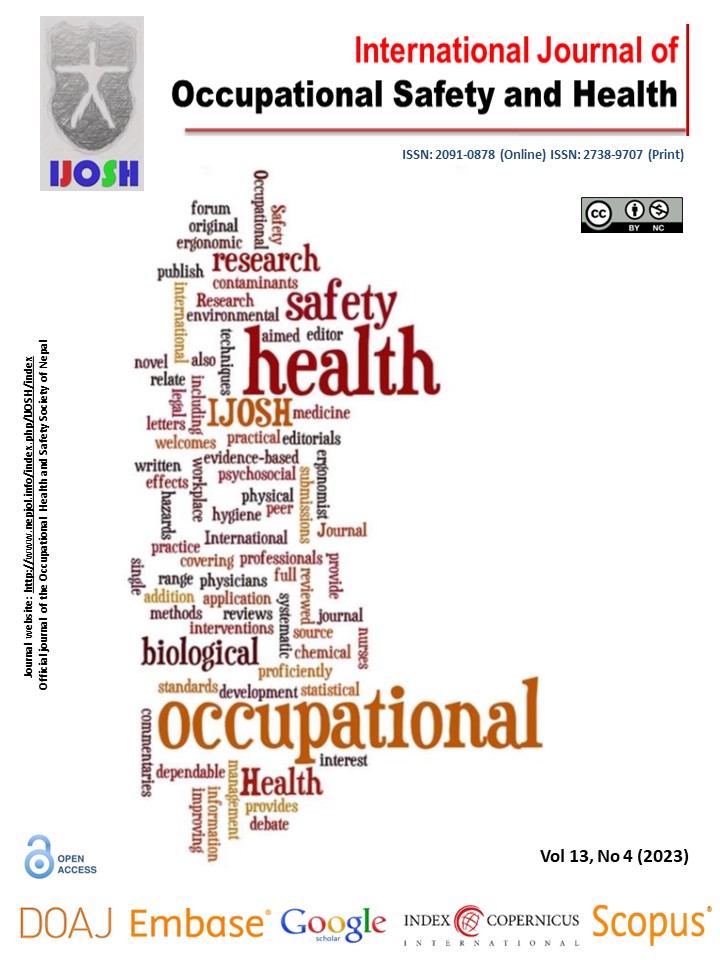The Influence of Demographic and Job-related Characteristics on Nurses’ Compassion Satisfaction and Fatigue
DOI:
https://doi.org/10.3126/ijosh.v13i4.51447Keywords:
Burnout, Compassion satisfaction, Nurses, secondary traumatic stressAbstract
Introduction: Growing stress and declining job satisfaction are the major challenges in nursing. Demographic and work-related factors may influence nurses’ compassion satisfaction and fatigue levels. Therefore, the study examined the impact of demographic and occupational factors on nurses’ professional quality of life.
Methods: A cross-sectional study was conducted on 172 nurses working in two tertiary care hospitals in Pokhara using proportionate stratified random sampling. Data was gathered using the Professional Quality of Life (ProQOL) scale version 5 in September 2019. SPSS was used for bivariate and multivariate analysis to determine a significant relationship between socio-demographic and work-related variables and three professional quality-of-life subscales. The ethical approval was taken from the Institutional Review Committee (IRC) of Pokhara University (Reference Number: 83-075-76).
Results: Most of the participants showed an average level of compassion satisfaction (79.1%, n=136), burnout (77.9%, n=134), and secondary traumatic stress (85.5%, n=147). The study revealed a significant mean difference between demographic characteristics (marital status and having children at home) and three professional quality of life subscales. Similarly, the study did not yield significant mean differences between the work-related variables and three professional quality-of-life subscales.
Conclusion: Nurses in tertiary care hospitals exhibited moderate to high levels of compassion satisfaction while experiencing moderate to low levels of burnout and secondary traumatic stress. Despite moderate to low levels of burnout and secondary traumatic stress, it is imperative to address these issues as they have the potential to lead to medical errors and compromise patient care standards.
Downloads
Downloads
Published
How to Cite
Issue
Section
License
Copyright (c) 2023 Salina Shrestha, Sunita Sharma, Santosh Kumar Gurung, Ramkrishna Chapagain, Bharat Ram Dhungana

This work is licensed under a Creative Commons Attribution-NonCommercial 4.0 International License.
This license enables reusers to distribute, remix, adapt, and build upon the material in any medium or format for noncommercial purposes only, and only so long as attribution is given to the creator.





